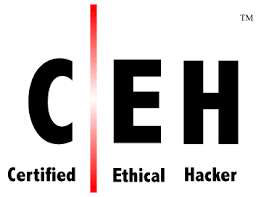
Ethical hackers use the same tools and techniques as malicious hackers but deploy them to prevent intrusion and damage to IT systems. This 100% online course will prepare you for EC-Council’s Certified Ethical Hacker exam (312-50). You will master key concepts in ethical hacking, including scanning testing and hacking computer networks to devise and implement security measures.
As a cybersecurity position, ethical hacking is considered among the most popular and potentially lucrative jobs of the 21st century. According to PayScale.com, ethical hackers earn over $80,000 per year on average, not including bonuses.
Cybersecurity experts note that the fluid, fast-changing nature of data protection ensures a dynamic and challenging career path for ethical hackers.
The US Bureau of Labor Statistics (BLS) lists cybersecurity among its fastest-growing career areas. The BLS expects 32% growth in information security jobs over the coming decade, over six times the growth rate for all jobs.
WHAT DO ETHICAL HACKERS DO?
Ethical hackers find vulnerable or unsecured entry points in computer networks, gain access to the network, then work to fix the weaknesses. Using the same tools as malicious hackers do, they scan network ports, examine software installed on the network and seek ways to find files, passwords, and information that could be stolen.
WHAT SKILLS ARE IMPORTANT FOR ETHICAL HACKING?
Hacking skills include identity and password spoofing, network traffic monitoring (sniffing), exploiting network overflows and injecting malicious code into network databases. Ethical hackers use all of these skills for the purpose of detecting and preventing intrusions and damage.
IS CERTIFICATION IMPORTANT FOR AN ETHICAL HACKER POSITION?
Ethical hacking involves access to extremely sensitive and valuable equipment, software and data. A certification such as the Certified Ethical Hacker (CEH) signals to the network security industry that an ethical hacker takes the commitment to diligence and integrity seriously.
IS ETHICAL HACKING A GOOD CAREER FOR REMOTE WORK?
Ethical hacking is a highly mobile profession that lends itself well to remote, contracting and freelance work.
There are no educational prerequisites for this course. However, you should have a strong background in core IT concepts such as network infrastructure, computer hardware, software and security.
Eric Reed
Since 2005, Eric Reed has provided security consulting to large organizations including Fortune 500 companies and the United States military. His pass rate for CEH, CHFI, and ECSA/LPT exams is 95%. He is a member of the EC-Council certification organization's Circle of Excellence.